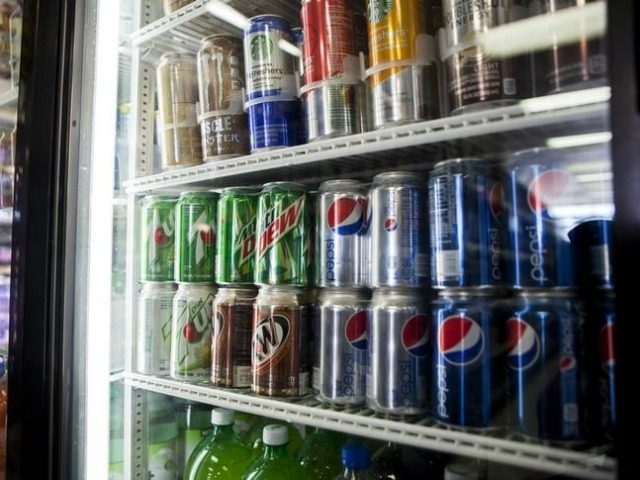Stores that sell sugary drinks tend to increase their marketing efforts to customers on days when the government issues Supplemental Nutrition Assistance Program (SNAP) benefits to food stamp recipients, according to a study recently published in the American Journal of Preventive Medicine.
The study, published in May, found that retailers were 1.88 times more likely to prominently display their sugary beverages in their stores at times of the month when the government issues food stamp benefits compared with other days of the month. Researchers also found that stores were 1.66 times more likely to promote advertisements for sugar-laden beverages.
The study team, led by a researcher at Harvard’s School of Public Health, looked at advertisements, in-store displays, and prices of beverages at 630 retailers that accepted SNAP in three of New York’s cities in fall 2011. The researchers included sweetened beverages such as soda, sweet tea, sports drinks, energy drinks, and fruit juices in their study.
After visiting the stores at different points throughout the month, they found that retailers often increased their marketing efforts during the first few days of the month when the government issues SNAP benefits.
“Because most SNAP benefits are spent within the first week of receipt, retailers may respond by changing marketing to meet anticipated demand,” the authors concluded.
The study team also found that stores in areas with high SNAP enrollment were more likely to advertise their sugary beverages during the SNAP period than stores in areas with low SNAP enrollment.
“This targeted marketing likely increases purchases of [sugary beverages] and may at least partially explain disparities in purchasing, consumption and health outcomes by SNAP participation,” the study’s authors state.
The “targeted marketing” tactics employed by these retailers have persuaded those receiving SNAP benefits to use them to purchase these drinks.
The U.S. Department of Agriculture’s (USDA) Food and Nutrition Service notes that households receiving SNAP benefits spent more on soft drinks than households that did not receive SNAP benefits.
Corporate interests have been profiting off of government poverty programs such as SNAP for many years.
Breitbart News reported on a Government Accountability Institute (GAI) study from 2012 which found that banking conglomerate JP Morgan made more than $560,492,596 since 2004 from processing Electronic Benefits Transfer (EBT) cards from 18 states. JP Morgan made this money from processing these benefits off of a contract it had with the USDA’s food stamp program.
The company also decided to exert its political muscle by increasing their donations to House and Senate Agriculture Committee members when they entered the EBT processing business.
“Between 1998 and 2002, JPMorgan’s total contributions per election cycle averaged $82,897,” the GAI report states. “After JP Morgan entered the EBT services market until the 2010 election cycle, their average donation per cycle more than doubled to $215,120.”

COMMENTS
Please let us know if you're having issues with commenting.